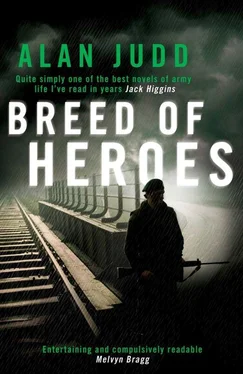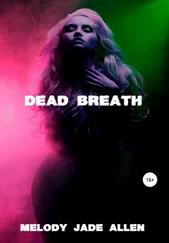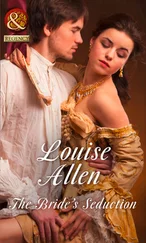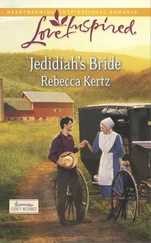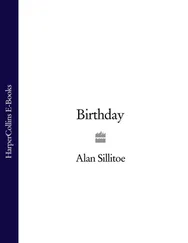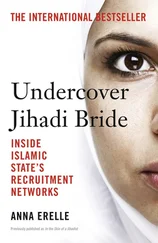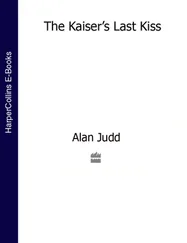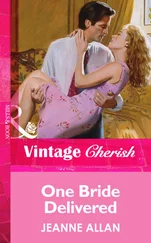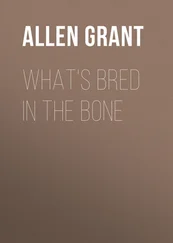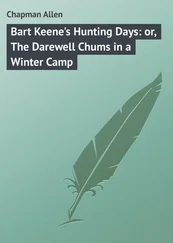‘Perhaps you’ll be able to make up for it here,’ said Charles.
Chatsworth raised his glass. ‘Let’s hope so.’
Charles had meant it as a joke but seeing Chatsworth take his remark seriously caused him to doubt his own intentions. It was quite likely that someone was going to kill or be killed during the next few months.
Before he left the Mess that night Charles received a telephone call from Janet. She had got the number from military enquiries. In a conversation made awkward by enforced normality, she said that she was going to a wedding in Dublin the following month and suggested he came down for the night. He explained that he wasn’t allowed south of the border and asked whether she could get up to Belfast — where he would be by then — for the night. She thought it might be possible. It then occurred to him that he didn’t know whether he would be allowed to take a night off. She asked whether he was sure he wanted to see her. He said he was. She said that she didn’t want to be in the way. He tried to reassure her, but was rather reticent because he was acutely aware of Chatsworth listening to every word. In the end they agreed that he should ring her nearer the time. She asked, with a slightly nervous jokiness, whether he had killed anyone yet. She daily expected to hear that he had slaughtered dozens, and added that she presumed that that was what he was there for. They bade each other a formal goodbye.
‘Is she very attractive?’ asked Chatsworth, immediately Charles had replaced the receiver.
‘Yes, she is, quite.’
‘I wouldn’t mind meeting her when she comes over. You know, if you’re on duty or anything.’
‘That’s very kind of you.’
Chatsworth nodded his acknowledgment. ‘Let me know when she’s coming.’
During the final week in Killagh, just before the relieving unit arrived, there was an event which made national and international headlines. Charles was involved by default of Chatsworth, a part of whose platoon had crossed the border by mistake and had been arrested by the Irish Army. The meanderings of the border were such as to make accidental crossings all too easy, but fortunately encounters with the Irish Army were usually amicable. Names and details of the soldiers and their weapons were taken, and they were then escorted back to Northern Ireland. Because Chatsworth was involved, however, there was the suspicion that the crossing might have been less accidental than most. Edward was upset because the CO was angry.
The result was that Charles’s platoon had to patrol the key points, such as electrical installations, gas and water works. They divided the work between sections and Charles was in the leading Land-Rover of two on the way to inspect an electricity transformer when they heard an explosion. Though loud, it was difficult to tell from which direction it came but it felt large. They all seemed to feel it in the pits of their stomachs a split second before they heard it. They turned off the lane and drove up the rough track that led to the transformer. At the top of a short hill they rounded a corner and saw that something had happened to the track about halfway between them and the transformer. There was a large crater, the grass around was smoking and was littered with bits of yellow material. Charles stopped his Land-Rover and sat for a few moments looking. It was soon clear that the yellow bits had been an Electricity Board van. There were other, darker bits scattered about.
Charles ordered his men out of their vehicles and sent them all, except his own radio operator, to take up tactical positions on the crest of the hill. He warned them to watch for booby-traps. He feared an ambush and so dreaded having to account to the CO for dead men that he found himself shouting ‘Hard targets!’ as they doubled across the fields. He called up the rest of his platoon over the radio and then went forward to look at the mess. The crater was several feet deep, the engine of the van was about fifty yards up the track and one of the seats was smoking in the grass. A part of a body, wearing a jacket, lay nearby. When he reported to battalion headquarters he was told to do nothing but to wait for the CO and Henry Sandy. Edward was apparently still involved with Chatsworth and his troubles. It crossed Charles’s mind that Chatsworth would be very jealous of his having witnessed the carnage.
When the CO arrived he made no comment on the scene, and his face was expressionless. ‘Keep half your men as they are,’ he said, ‘and get the other half to help the medics with the bodies. You supervise them. They need an officer at a time like this.’ He pointed to the plastic bags which the medical orderlies were unfolding and laying on the grass. ‘Put the bits on the death sheets there. You don’t know how many bodies there are, do you?’
‘At least two, I think.’
The CO nodded, his lips pressed tightly together. He looked at the pieces of bodies on the grass, and then hard at Charles as though to see what he was thinking. ‘Don’t touch any bit of the vehicle until ATO’s been and had a look at it,’ he said. ‘It’s all good evidence for him. And keep a grip on your men. They’re very young. This might upset some of them. It’s their first time.’
They gathered the charred and reddened bits, enough to indicate three bodies but not enough to complete them, and put them in the back of Henry’s ambulance Land-Rover. Charles’s soldiers were pale and serious.
The device turned out to have been a mine activated by a trip-wire across the track. It had been intended for the Army’s daily visit to the transformer but had instead caught three maintenance engineers. There was considerable press interest and Philip Lamb, to his delight, was made PRO. The CO was interviewed on television and described the incident as ‘an appalling and mindless act of bestiality’. Nigel Beale thought that the brewery explosion had been a trial run for the real thing in order to test reactions, and Chatsworth felt slighted because nobody would describe the scene to him in the detail he wanted. Charles was a little surprised at himself for feeling nothing at all. When it came to it, there seemed to be nothing to feel or say.
It was cold when they left Killagh and there was snow on the ground. This made night ambushes seem a bitter cruelty, though the days were bright, sunny and exhilarating. They were relieved by a regiment of gunners, a polite and rather formal people who often wore civilian clothes and soon slowed down the pace of operations to what seemed to them acceptable. There was talk of a fixture with the rugby club.
Cursed though he was, and absurd though he seemed, the CO’s tactics of day and night patrolling on foot combined with ambushes and hides were ideally suited to the kind of warfare that was to develop in the border area, though it had not then. In the briefing for Belfast he stressed that they would maintain the same level of activity there but would have to discipline themselves to the notion of ‘minimum force’. The eyes of the world — the press — would be upon them, and any force used — and they would have to use a good deal of it — would not only have to be the minimum necessary but would have to be seen to be so. Every rubber bullet fired had to be accounted for and treated with the same seriousness as the firing of a real one, to which it was the only alternative. They would not use gas for riot control since it was not sufficiently specific, affecting villains and innocents alike. He would have no cowboys blasting off at every lout on a street corner; on the other hand he was not prepared to stand back and see his soldiers murdered on British streets, no matter what the politicians might think. If the IRA, or any other bunch of thugs that tried to call themselves an army, gave him trouble he would hit them; if they gave more trouble he would hit them hard; if they continued to give trouble he would kill them. Otherwise, he would leave them alone and he expected every soldier in the battalion to do likewise.
Читать дальше
